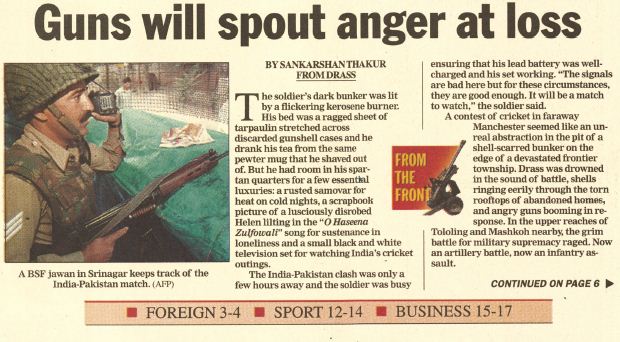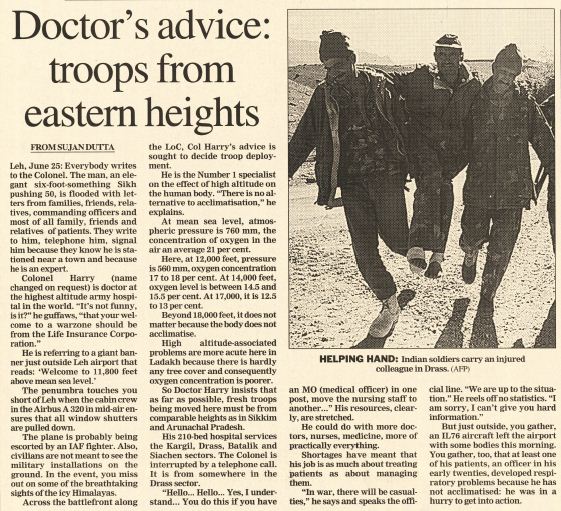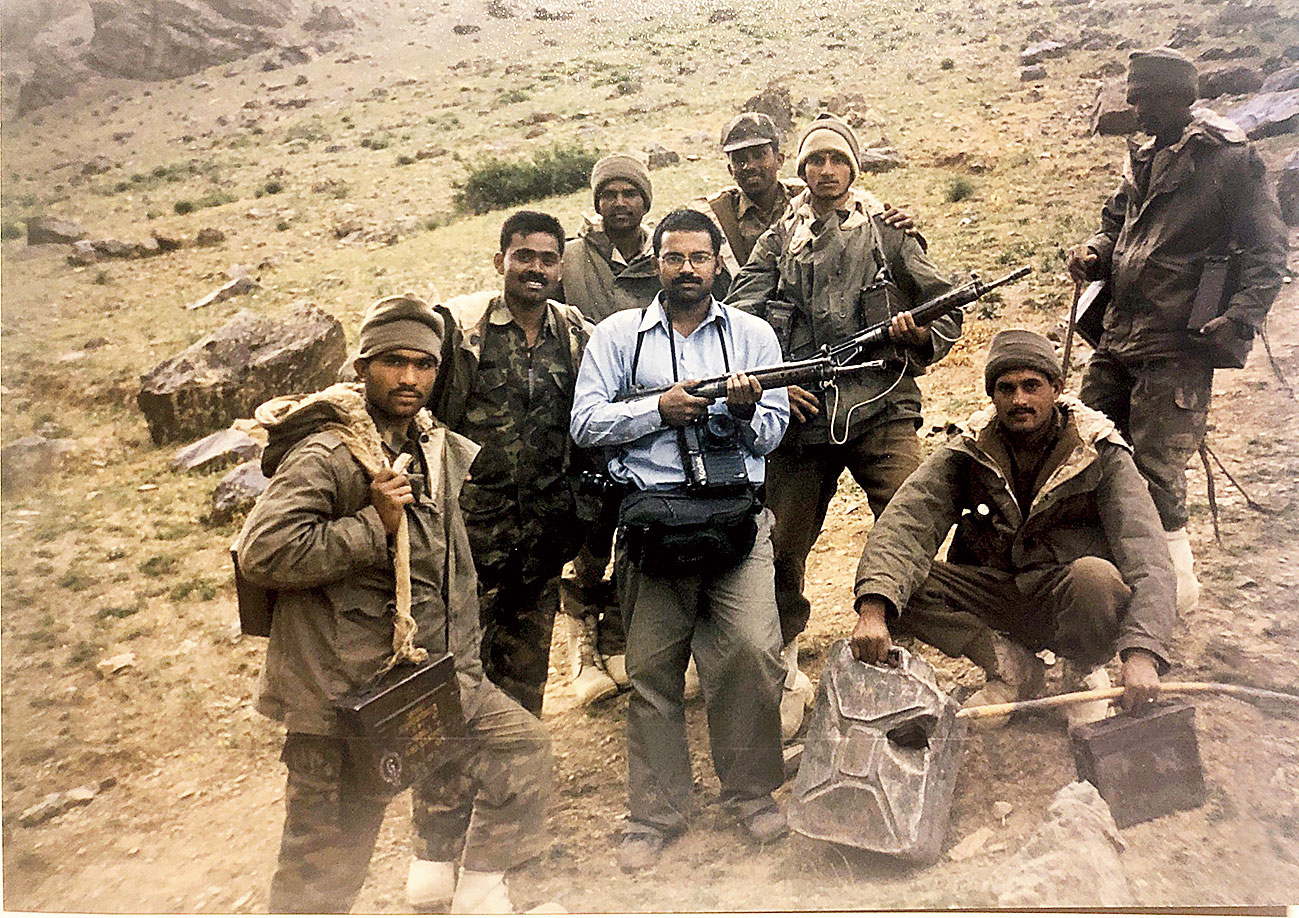The soldier’s dark bunker was lit by a flickering kerosene burner. His bed was a ragged sheet of tarpaulin stretched across discarded gunshell cases and he drank his tea from the same pewter mug that he shaved out of. But he had room in his spartan quarters for a few essential luxuries: a rusted samovar for heat on cold nights, a scrapbook picture of a lusciously disrobed Helen lilting in the “O Haseena Zulfowali” song for sustenance in loneliness and a small black and white television set for watching India’s cricket outings.
The India-Pakistan clash was only a few hours away and the soldier was busy ensuring that his lead battery was well-charged and his set working. “The signals are bad here but for these circumstances, they are good enough. It will be a match to watch,” the soldier said.
A contest of cricket in faraway Manchester seemed like an unreal abstraction in the pit of a shell-scarred bunker on the edge of a devastated frontier township. Drass was drowned in the sound of battle, shells ringing eerily through the torn rooftops of abandoned homes, and angry guns booming in response. In the upper reaches of Tololing and Mushkoh nearby, the grim battle for military supremacy raged. Now an artillery battle, now an infantry assault.
Troop convoys were droning up and down the shelled-out town centre, depositing clusters of jawans come to dig fresh gun positions. Some were busy cleaning turrets of resting guns, others preparing to launch another round of pounding.
Under a huge marquee, a unit bound for the Mushkoh battleground was finishing a hurried lunch of chapatis, dal and raw, uncut onions. But at the back of all this, time was ticking away towards that other India-Pakistan confrontation on a playground called Old Trafford.
For this bunkered soldier, though, the cricket match wasn’t quite just play. It was an all-too-human need known as distraction, a way of escaping the war for a while and establishing touch with a more normal patch of life.
And what could be more distracting today, or more normal, than an India match in the World Cup? An India-Pakistan match, of course, meant para-distraction, para-normalcy.
But for the jawan, as for many others engaged along the frontier, the match had another dimension, an almost war-like intensity bubbling over flames of national pride and historical prejudice.
The jawan was posted on the Poonch frontier earlier and was disarmingly articulate about the split-level combat mind- set an India-Pakistan cricket game can create.
“In Poonch, we never even used to have to check out the result of an India-Pakistan match. If they won, they would fire a few celebratory shots across. But if they lost, they would make our lives miserable. If they lose tonight, they are really going to pack a punch in their bombardment,” the jawan said. “Cricket may be a game but for many of us, it is also an expression of national passion.”
Kargil, too, unhooked herself temporarily from the worries of a battle-weary, disrupted life and lapsed into a surreal embrace with cricket.
The few surviving general merchants and public trunk phone operators downed their shutters mid-afternoon to reach their television sets in time for the match.
The taxi stand in the centre of town, usually abuzz with out-of-work drivers lounging in the sun, was deserted. Wherever there was a television set, there was a group of people glued like Hamlyn rats to the Pied Piper. Shelling continued to hit Kargil hard all morning and afternoon but suddenly the town seemed to have shut out the battle in its frontyard.
Today’s shelling was focused on the nearby Khurbathang plateau just below Kargil’s television tower, where lie the charred remains of a convoy of road-building trucks and rollers bombed last fortnight.
Two shells also hit the vicinity of the nearby district headquarters near Baroo and one crashed into a garage behind the Siachen Hotel, the only place visitors to Kargil can now stay in.
Splinters flew across the hotel’s rooftops and dissipated in its little patio. But today, the shelling and the intensifying frontier battle were pushed back to the status of asides in street conversations.
All chat was centred on prospects of the India-Pakistan clash in Manchester, not the confrontation on the nearby frontier.
Sankarshan Thakur in Drass
This story was first published in The Telegraph in 1999












